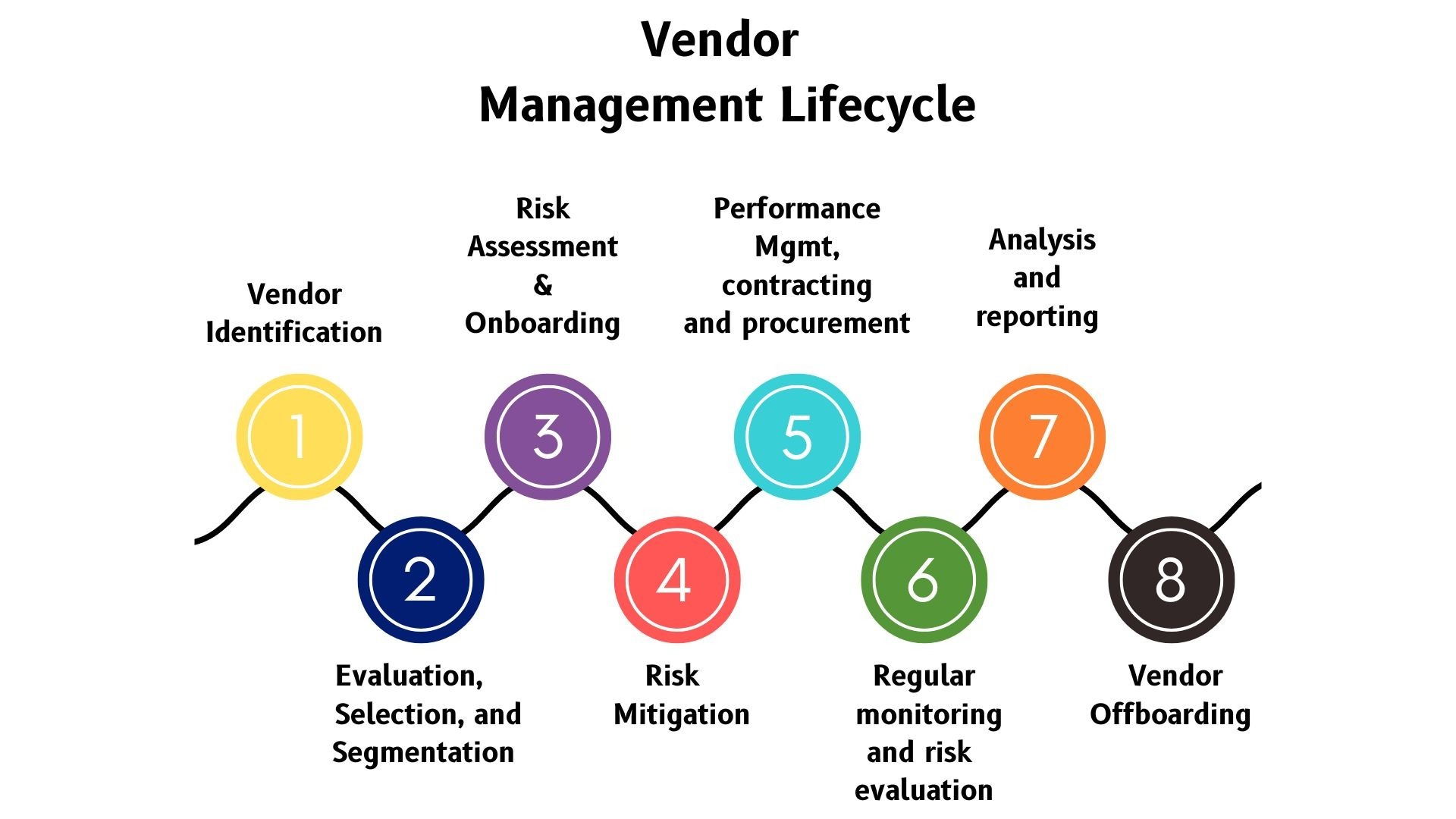Home>Finance>How Much Does A Spinal Fusion Cost Without Insurance?


Finance
How Much Does A Spinal Fusion Cost Without Insurance?
Published: November 16, 2023
Find out how much a spinal fusion procedure costs without insurance and explore financing options to cover the expenses. Take control of your finances with our helpful guide.
(Many of the links in this article redirect to a specific reviewed product. Your purchase of these products through affiliate links helps to generate commission for LiveWell, at no extra cost. Learn more)
Table of Contents
Introduction
Spinal Fusion is a surgical procedure that aims to stabilize and fuse together two or more vertebrae in the spine. It is typically performed to treat conditions such as spinal instability, degenerative disc disease, herniated discs, spinal fractures, or spinal tumors. However, for those without insurance coverage, the cost of spinal fusion can become a major concern.
Without insurance, the financial burden of spinal fusion can be substantial. It is important to understand the factors that contribute to the cost and explore options for financing this procedure to alleviate the financial strain.
In this article, we will delve into the various aspects of spinal fusion costs without insurance coverage. We will discuss the factors that affect the cost, provide an overview of the average cost, and break down the expenses involved in a spinal fusion procedure. Additionally, we will explore the options available for financing the procedure and outline important considerations before deciding to forgo insurance coverage for spinal fusion.
Understanding the costs associated with spinal fusion without insurance is crucial for making informed decisions about your healthcare. By gaining insight into the financial aspects, you can better plan for the procedure and explore financing options that suit your individual needs.
Understanding Spinal Fusion
Spinal fusion is a surgical procedure that involves joining two or more vertebrae in the spine to create a solid, stable structure. It aims to eliminate or reduce back pain and correct spinal deformities caused by various conditions. During the procedure, the surgeon uses bone grafts, metal plates, screws, or rods to fuse the affected vertebrae together.
Spinal fusion can be performed through different techniques, including anterior lumbar interbody fusion (ALIF), posterior lumbar interbody fusion (PLIF), transforaminal lumbar interbody fusion (TLIF), or posterior cervical fusion. The choice of technique depends on factors such as the location and severity of the spinal condition.
The procedure is typically recommended to treat spinal conditions that cause instability or pain that does not respond to conservative treatments like medication, physical therapy, or injections. Some common indications for spinal fusion include:
- Herniated discs: When the inner core of a spinal disc pushes through the outer layer, causing pain and nerve compression.
- Spinal stenosis: A narrowing of the spinal canal that puts pressure on the spinal cord and nerves.
- Spondylolisthesis: When one vertebra slips forward over another, causing instability and pinched nerves.
- Spinal fractures: Breaks or cracks in the vertebrae due to trauma or osteoporosis.
- Degenerative disc disease: Wear and tear on the spinal discs, leading to pain and instability.
Spinal fusion surgery aims to stabilize the spine and reduce pain by eliminating motion at the affected vertebrae. By fusing the vertebrae together, it restricts movement and prevents friction, reducing pain and discomfort. The fusion also helps restore the proper alignment of the spine and correct deformities caused by the underlying condition.
It is important to note that spinal fusion is a major surgical procedure that carries certain risks and requires a thorough evaluation by a qualified healthcare professional. The decision to undergo spinal fusion should be based on a careful assessment of the individual’s condition, symptoms, and treatment goals.
Factors Affecting Cost of Spinal Fusion
Several factors contribute to the cost of spinal fusion surgery without insurance coverage. Understanding these factors can help individuals anticipate and plan for the financial implications of the procedure. Here are some key factors that affect the cost:
1. Type of Procedure:
The complexity and technique used in the spinal fusion procedure can impact the cost. Different surgical approaches, such as ALIF, PLIF, or TLIF, may have varying costs due to differences in equipment, surgical time, and expertise required.
2. Hospital Charges:
The cost of the hospital stay is a significant component of the overall expenses. Factors such as room charges, operating room fees, anesthesia fees, and other related services can vary between healthcare facilities. The location and reputation of the hospital can also influence the cost.
3. Surgeon’s Fees:
The surgeon’s experience, expertise, and reputation can impact the cost of the procedure. Highly skilled surgeons may charge higher fees for their services. It’s important to find a qualified surgeon who specializes in spinal fusion and has a track record of successful outcomes.
4. Diagnostic Tests and Imaging:
Prior to the surgery, diagnostic tests and imaging such as X-rays, CT scans, or MRIs may be required to assess the condition of the spine. These tests incur additional costs, which should be factored into the overall expenses.
5. Pre-operative and Post-operative Care:
The cost of pre-operative and post-operative care, including physician consultations, physical therapy, medications, and follow-up visits, should be considered. These services are essential for a successful recovery and can contribute to the overall cost of the procedure.
6. Geographic Location:
The cost of spinal fusion surgery can vary depending on the geographic location, with certain regions or cities having higher healthcare costs. Urban areas generally have higher expenses compared to rural areas or smaller towns.
It is essential to consult with healthcare providers and hospitals to obtain accurate cost estimates specific to your location and circumstances. They can provide detailed information about the factors that contribute to the total cost, enabling you to plan and budget accordingly for the procedure.
Average Cost of Spinal Fusion Without Insurance
Spinal fusion surgery is a complex and costly procedure, and without insurance coverage, the financial burden can be significant. The cost of spinal fusion can vary widely depending on several factors, including the location, hospital charges, surgeon’s fees, and the complexity of the procedure.
On average, the cost of spinal fusion without insurance in the United States can range anywhere from $50,000 to $150,000 or even higher. This estimate includes the hospital charges, surgeon’s fees, anesthesia costs, and other associated expenses.
It is important to note that this is just an average figure, and the actual cost can vary greatly depending on individual circumstances and geographical location. In some cases, the cost may exceed these estimates, particularly if there are complications or additional procedures required during the surgery.
Geographically, the cost of spinal fusion can also vary. For example, the cost in urban areas or major cities tends to be higher compared to rural areas or smaller towns. This is often due to the higher overhead costs associated with the healthcare facilities in urban areas.
It is crucial for individuals considering spinal fusion without insurance to thoroughly research and compare costs from different hospitals and surgeons. Seeking multiple cost estimates and exploring options for price negotiation or financial assistance can help individuals find more affordable options.
Furthermore, it is worth noting that some healthcare providers and hospitals offer package deals for certain procedures, which may lower the overall cost. These packages often include pre-operative and post-operative care, diagnostic tests, consultations, and follow-up visits. Inquire with healthcare providers about any such packages that may be available for spinal fusion.
Remember, the cost of spinal fusion is not just a financial consideration. It is essential to prioritize your health and well-being when making decisions about the procedure. Consult with healthcare professionals, discuss your concerns, and explore all available options to find the most suitable and affordable approach to spinal fusion surgery.
Cost Breakdown of Spinal Fusion Procedure
The cost of a spinal fusion procedure without insurance can be broken down into several components. Understanding the breakdown of these costs can help individuals better comprehend the financial implications associated with the procedure. While these costs may vary depending on individual circumstances and geographical location, here is a general breakdown of the expenses typically involved in a spinal fusion procedure:
Hospital Charges:
The hospital charges for a spinal fusion procedure include the cost of the operating room, recovery room, and hospital stay. This encompasses the use of medical equipment, nursing care, and any additional services provided by the hospital. The duration of the hospital stay will depend on the complexity of the procedure and the individual’s recovery progress.
Surgeon’s Fees:
The surgeon’s fees involve the cost of the surgeon’s expertise, experience, and their time spent performing the procedure. This includes the evaluation, pre-operative consultations, the actual surgery, and post-operative care provided by the surgeon. The fees may vary depending on the surgeon’s reputation, qualifications, and geographic location.
Anesthesia Costs:
Anesthesia is administered during the spinal fusion procedure to ensure that the patient remains comfortable and pain-free. The cost of anesthesia is influenced by factors such as the duration of the surgery and the specific type of anesthesia used. Anesthesiologists charge for their services separately from the surgeon’s fees.
Medical Imaging:
Prior to the surgery, diagnostic tests such as X-rays, CT scans, or MRIs are typically required. These imaging studies help evaluate the condition of the spine and determine the most appropriate surgical approach. The cost of these tests should be considered as part of the overall expenses of the spinal fusion procedure.
Implants and Instrumentation:
In some cases, spinal fusion involves the use of implants and instrumentation such as screws, rods, or cages. These devices help stabilize and support the spine during the healing process. The cost of implants and instrumentation can significantly contribute to the overall expenses of the procedure.
Physical Therapy and Rehabilitation:
Following spinal fusion surgery, individuals often require physical therapy and rehabilitation to regain strength, flexibility, and mobility. The cost of these sessions should be factored into the overall expenses of the spinal fusion procedure.
It is important to note that the cost breakdown provided here serves as a general guideline. The actual expenses may vary depending on various factors, including the complexity of the procedure, the location, and the specific healthcare providers involved. Consulting with healthcare professionals and obtaining detailed cost estimates from different providers can help individuals gain a clearer understanding of the specific cost breakdown for their spinal fusion procedure.
Options for Financing Spinal Fusion Without Insurance
For individuals without insurance coverage, the high cost of spinal fusion surgery can seem overwhelming. However, there are several options available to help finance the procedure and manage the financial burden. Here are some potential avenues to consider:
Payment Plans:
Many healthcare providers offer payment plans that allow patients to spread the cost of the procedure over an extended period. These plans typically involve monthly installments, which can make the overall expense more manageable. It is essential to discuss payment plan options with your healthcare provider and understand the terms and interest rates associated with such arrangements.
Medical Credit Cards:
There are medical credit cards specifically designed to cover healthcare expenses. These cards often offer deferred interest or low-interest financing options for a certain period. However, it is crucial to carefully read the terms and conditions and evaluate your ability to repay the amount within the promotional period to avoid high interest charges.
Healthcare Loans:
Some financial institutions provide loans specifically for medical expenses. These loans often have lower interest rates compared to credit cards or personal loans. Exploring healthcare loan options can provide an opportunity to secure financing for the spinal fusion procedure while minimizing the overall interest paid over time.
Personal Savings or Assets:
Using personal savings or assets, such as investments or property, can be an option to finance spinal fusion without insurance. It is advisable to carefully evaluate the opportunity cost of using your savings or selling assets and consider the long-term financial impact.
Medical Tourism:
Sometimes, individuals choose to travel to other countries where the cost of spinal fusion surgery is significantly lower. This is known as medical tourism. However, it is essential to thoroughly research the healthcare facility, surgeons, and post-operative care in the chosen destination to ensure the quality and safety of the procedure.
Charitable Organizations and Assistance Programs:
There may be charitable organizations or assistance programs that provide financial aid or grants to individuals in need of costly medical procedures. Research and explore these resources, as they can potentially provide assistance in covering a portion of the spinal fusion expenses.
Prior to making any financial decisions, it is essential to consult with healthcare providers, financial advisors, and explore all available options. Understanding the terms, interest rates, and repayment plans associated with different financing options is crucial in making an informed decision that aligns with your financial circumstances and goals.
Considerations Before Going Without Insurance for Spinal Fusion
Choosing to undergo spinal fusion surgery without insurance coverage is a significant decision that comes with financial implications and risks. Before proceeding with this choice, it is important to carefully consider the following factors:
Financial Preparedness:
Spinal fusion surgery can be expensive, and it is crucial to assess your financial preparedness before opting to go without insurance. Evaluate your ability to cover the costs of the procedure, including hospital charges, surgeon’s fees, and post-operative care. Consider your current financial situation, savings, and potential financing options to ensure you can handle the financial burden without jeopardizing your overall financial stability.
Alternative Treatment Options:
Spinal fusion is a major surgical procedure, and it’s important to explore all possible alternatives that may provide relief without the need for surgery. Consult with medical professionals to determine if non-surgical treatments such as physical therapy, medication, or injections can effectively manage your condition. Exhaust all conservative treatment options before considering surgery without insurance coverage.
Understanding Potential Complications:
Each surgical procedure carries risks, and without insurance, it becomes even more crucial to understand the potential complications associated with spinal fusion surgery. Research the risks and potential outcomes of the procedure and discuss them thoroughly with your surgeon. Understanding the possible complications will help you make an informed decision and be prepared for any unforeseen circumstances.
Researching Healthcare Providers:
When going without insurance, it is essential to carefully research and select the right healthcare providers. Look for experienced surgeons who specialize in spinal fusion procedures and have a track record of successful outcomes. Consider their reputation, credentials, and patient reviews to ensure you are receiving quality care from a trusted professional.
Emergency Preparedness:
While nobody anticipates complications, it is crucial to have plans in place for any unforeseen emergency situations that may arise. Understand the potential costs of emergency care, follow-up visits, and any additional treatments that may be required. Having a backup plan and understanding how to handle unexpected circumstances can help mitigate some of the risks associated with going without insurance for spinal fusion.
Ultimately, the decision to proceed with spinal fusion surgery without insurance coverage should be carefully evaluated and based on a thorough understanding of the risks, benefits, and financial implications. Consult with healthcare professionals, thoroughly research your options, and ensure that you have a clear plan in place to handle the costs and potential complications associated with the procedure.
Conclusion
Spinal fusion surgery is a significant procedure that can provide relief and improve quality of life for individuals suffering from spinal conditions. However, the cost of spinal fusion without insurance coverage can be a major concern. Understanding the factors that affect the cost, exploring financing options, and considering the potential risks are all crucial steps in making informed decisions about your healthcare.
Before deciding to go without insurance for spinal fusion surgery, carefully evaluate your financial preparedness and explore alternative treatment options. It is important to thoroughly research healthcare providers, understand the potential complications, and have plans in place for emergency situations. Consider all available options for financing the procedure, such as payment plans, medical credit cards, healthcare loans, personal savings, or assistance programs.
While the cost of spinal fusion without insurance can be intimidating, it is important to prioritize your health and well-being. Consult with healthcare professionals, seek multiple cost estimates, and thoroughly assess your financial situation before making a decision. It may also be beneficial to explore additional resources, such as charitable organizations or medical tourism, to help alleviate some of the financial burden.
Remember, every individual’s situation is unique, and what works for one person may not work for another. Take the time to carefully consider your options and make the decision that best aligns with your needs, financial circumstances, and overall well-being.
By being proactive, informed, and resourceful, you can navigate the challenges of spinal fusion without insurance coverage and find a path towards achieving better spinal health.














